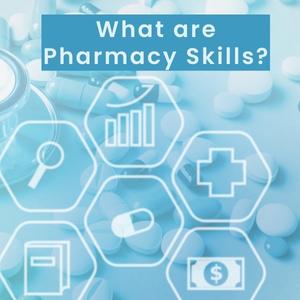Announcement
Get Ready for INDUS CUP 2K26! | Dates: 5–10 January 2026 | Stand a Chance to Win Cash Prizes up to ₹10,00,000!...Read more Get Ready for INDUS CUP 2K26! | Dates: 5–10 January 2026 | Stand a Chance to Win Cash Prizes up to ₹10,00,000!
We are excited to announce the Indus Hackathon 2025, an exhilarating one-day event organized by the CSE Department of Indus University....Read more We are excited to announce the Indus Hackathon 2025, an exhilarating one-day event organized by the CSE Department of Indus University.
26th ISTE Faculty Annual State Convention will be held at Indus University on April 27, 2023....Read more 26th ISTE Faculty Annual State Convention will be held at Indus University on April 27, 2023.
Get Ready for INDUS CUP 2K26! | Dates: 5–10 January 2026 | Stand a Chance to Win Cash Prizes up to ₹10,00,000!...Read more Get Ready for INDUS CUP 2K26! | Dates: 5–10 January 2026 | Stand a Chance to Win Cash Prizes up to ₹10,00,000!
We are excited to announce the Indus Hackathon 2025, an exhilarating one-day event organized by the CSE Department of Indus University....Read more We are excited to announce the Indus Hackathon 2025, an exhilarating one-day event organized by the CSE Department of Indus University.
26th ISTE Faculty Annual State Convention will be held at Indus University on April 27, 2023....Read more 26th ISTE Faculty Annual State Convention will be held at Indus University on April 27, 2023.

The prerequisite skills that businesses look for before hiring you are pharmacy skills. You can successfully perform the tasks of a pharmacist by using practical pharmacy skills. Additionally, these abilities help you reach your full potential. Depending on the requirements of the position, different skill sets are listed in job adverts. Pharmacists need to be knowledgeable and have all the necessary skills. For you to advance in pharmacy, you'll need a variety of abilities. Some pharmacy skills can be learned by taking pharmacy courses and continually practising, while others come naturally. Depending on the kind of pharmacist you are, there are different skills that are in demand. The list of capabilities needed to support your professional and personal development in this field is presented below.


Accuracy: Accuracy is crucial for a pharmacist when dispensing medications. A pharmacist's primary responsibilities include managing the production, marketing, and distribution of pharmaceuticals. It can be dangerous when a pharmacist mismanages the patient's medications. They are expected to handle medications expertly, quickly, and without making any mistakes. Although it is difficult to read a doctor's handwriting, as we all know, a pharmacist must be able to do so in order to fill prescriptions. Being a pharmacist is challenging since their work must be accurate, or else it could result in death.
Communication skills: As communication is the cornerstone of our work with patients, it is crucial for pharmacists to have strong communication skills. We must be fluent in both English and the regional tongues of the city. A pharmacist must inform patients about the amount, timing, and method of administration of their medications. For instance, it's essential for patients with chronic illnesses to take their medications on time every day.
Proofreading: Because doctors occasionally fail to recognise drug-drug interactions when prescribing pharmaceuticals, pharmacists check prescriptions for errors so that they can alert physicians to the problems and request that the prescription be amended. However, the pharmacist must first have a good understanding of the medications.
Interpersonal Skills: A pharmacist must possess interpersonal traits in order to work with patients. Only a pharmacist can interact with patients and ensure that they cooperate and take prescriptions because patients can be of all types and attitudes. Being a pharmacist, I witness the conflict between the patient and the doctor. Therefore, a pharmacist needs to have good interpersonal skills such as patience, humour, and diplomacy.
Multitasking: A pharmacist should be capable of multitasking both in their job and the distribution of medications. They must verify medication expiration dates, replenish medication, and complete various little-too-large chores that have been delegated to them.
Patient counselling: Counseling patients is a crucial skill that all pharmacists should possess. A pharmacist's primary responsibility is to ensure that patients are taking their drugs appropriately by giving them essential information, guidance, and assistance regarding their medications. A pharmacist must therefore have strong communication skills in addition to their in-depth understanding of medications, which they can learn throughout their previous studies.
Computer proficiency: While our generation moves towards using established online pharmacies (such as e-pharmacy). Given that the majority of pharmacies are online, a pharmacist needs to be computer-literate. Additionally, it is simpler to record client information, inventory totals, and billings, which is a significant feature.
Professional ethics: We must uphold ethics in all aspects of life, particularly in the pharmacy industry. Unless there is an emergency, they shouldn't provide the patients' personal information.
Either a diploma in pharmacy or a bachelor's degree in pharmacy is necessary to become a pharmacist. More information on their eligibility requirements, admissions procedure, course structure, and length is provided below:
A minimum grade of 10+2 in the science stream is required for admission to the two-year D.Pharma programme. You should obtain a diploma if you want to operate your own pharmacy or drugstore. Additionally, based on merit, students studying a diploma programme may be granted direct admission to the second year of a Bachelor of Pharmacy programme. There are numerous colleges that offer diploma programmes, and each of them has a unique admissions process. Some might merely conduct interviews, while others might demand that you pass an entrance exam.
A bachelor's degree is necessary if you wish to work for the best pharmaceutical corporations. You can enrol in the Bachelor of Pharmacy course after the 12th in the science stream, and it is a four-year programme. Depending on the college or institute you are applying to, you may need to pass different entrance tests to be admitted to programmes offering the BPharm degree. The curriculum frequently combines classroom instruction with hands-on training relevant to the pharmaceutical business.


One has a wide variety of job chances and career options in the sector after earning a B.Pharm or D.Pharm. Both the governmental and private sectors are open to hiring individuals. Students may choose to work in pharmaceutical companies or as pharmacists in private hospitals. You can even open your own medical practices and stores. You can work as a drug inspector, pharmaceutical marketer, or quality control and production. You can start a business or a clinic. After completing a B.Pharm in Pharmaceutics, you can continue your education by enrolling in post-graduate courses like the M.Pharm, which have concentrations in pharmaceutical chemistry, pharmaceutical biotechnology, and pharmaceutical analysis.